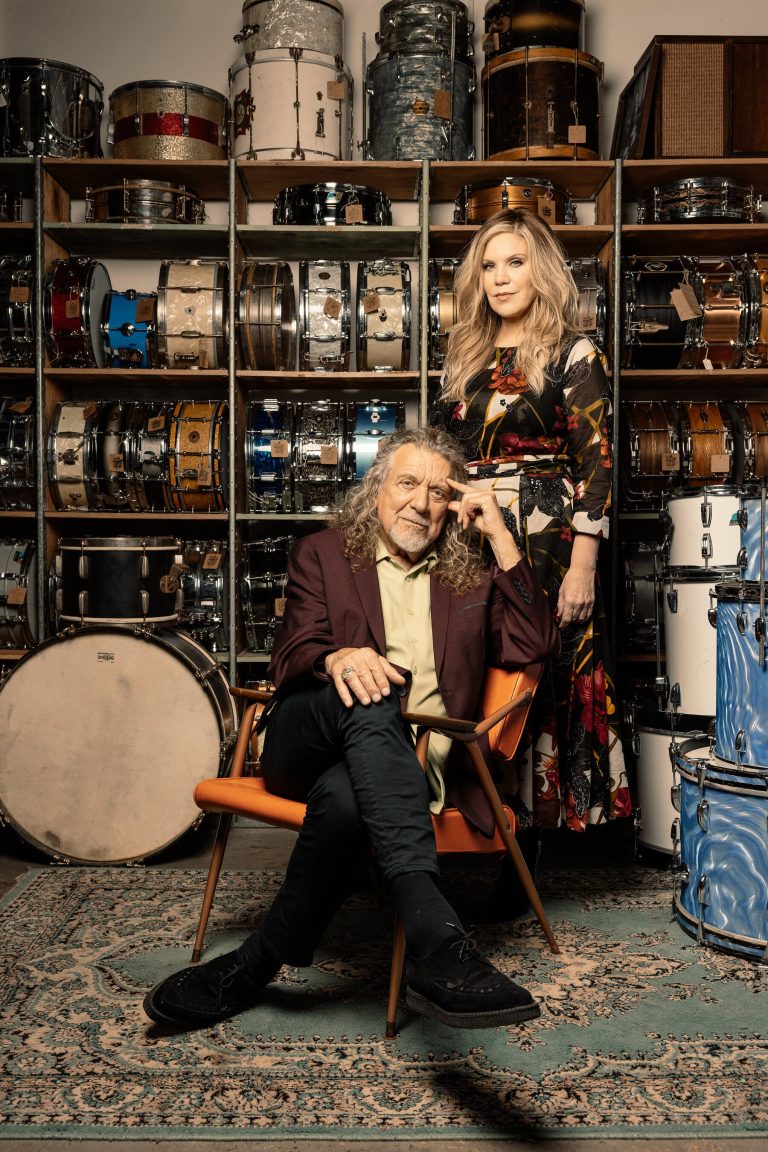After 14 Years, Robert Plant and Alison Krauss Finally Reunite.
The duo worked with T Bone Burnett on the million-selling triumph “Raising Sand,” in 2007. Its sequel is once again an alternative to nearly all of its pop contemporaries.
“Raising Sand,” the 2007 duet album by Robert Plant and Alison Krauss, started as an experiment, a modest side project for two longtime bandleaders to revisit old and recent songs. It was a hushed, long-breathed album with a haunted twang, yet it turned into a blockbuster — selling more than a million copies and winning six Grammy Awards including album of the year.
A follow-up would have seemed like an obvious next step. Yet it has taken 14 years for the arrival of that sequel: “Raise the Roof,” due Nov. 19.
“Raise the Roof” almost magically reclaims the spectral tone of “Raising Sand,” then finds ways to expand on it, delving further into both quiet subtleties and wailing intensity. “It’s a little bit more smoky, a little bit more lustrous than the first record,” Plant, 73, said by phone from his home in western England.
“It’s definitely different, even though it might be coming out of the same sort of crevasse, the same fork in the landscape of our musical lives. It has a mood to it, which is laced with time and with the actual age and maturity of the songs themselves.”
But the musicians needed a decade of reflection between albums. “If we had thought we knew what we were doing in the first place, we could probably have repeated it,” T Bone Burnett, 73, the producer and linchpin of both albums, said by telephone from Nashville. “But we didn’t. At the time, we were just kind of goofing off, having fun. And that’s what we were up against. We’ve been waiting for it to get to that point where we could just have fun doing it again.”
Plant and Krauss were an unlikely pairing from the start. “We were from two radically different worlds,” Plant said. He was the world-conquering, musically restless rock singer who had fronted Led Zeppelin. Krauss was already a luminary in the more close-knit world of bluegrass and Americana, leading the string band Union Station.
They were also strikingly disparate singers, with contrasting musical instincts. Krauss, 50, grew up harmonizing in bluegrass groups, figuring out and delivering restrained, precise, locked-in ensemble parts. “I’m a regimented-type singer,” she said. “Bluegrass people sing things very consistently, because there’s three parts going on most times. And if someone pulls around and goes and does something different, now the other two want to run you over with their car.”
Plant was used to a lead singer’s free rein; he would improvise with every take. “I try to sing across the beat quite a bit,” he said. “If it’s a straightforward groove, I like to bounce across the left and right of the groove. I did it in Zeppelin. I kind of scuttle it, accelerate it, slow it down.” He chuckled. “It drives them mad.”
Krauss grew to appreciate their differences. “It makes you feel like you’re hanging off the edge of a cliff,” she said by telephone from her home in Nashville. “It is so exciting and so magnificent.” Plant and Krauss first sang together as part of a 2004 tribute to Lead Belly, and Plant proposed that they try recording together when their schedules aligned; that took more than a year. Plant initially suggested trying just three days in the studio to see if anything worked out.
They enlisted Burnett, who had recently reimagined old-timey Appalachian music for the soundtrack to “O Brother, Where Art Thou?,” which featured Union Station. For “Raising Sand,” the three gathered songs — mostly about tragic lost loves — and transfigured them with close harmonies and an aura of suspended time. Burnett’s studio band let tempos hover and undulate; Plant and Krauss discovered how uncannily their voices could fit together.
“A funny thing happens with them,” Burnett said. “When the two of them sing, it creates a third voice, a third part in their harmonies when there are only two parts. You know, one plus one equals two unless you’re counting, say, drops of rain. Then one plus one could equal one, or one plus one could equal a fine mist. Their voices are in that relative space where they sing together and it creates a fine mist.”
“Raising Sand” was an otherworldly alternative to virtually all of its pop contemporaries (its competition at the Grammys included Lil Wayne’s “Tha Carter III” and Ne-Yo’s “Year of the Gentleman”), and although it was released on the folky independent label Rounder, eager listeners sought it out. It reached No. 2 on the Billboard 200 album chart.
Plant already had another project underway in 2007: the arena-sized last hurrah of Led Zeppelin that December. But the Led Zeppelin performance was an endpoint, while “Raising Sand” was a new beginning. Plant and Krauss toured for much of the next year, with concert sets that included some revamped Led Zeppelin songs. They plan to tour again in 2022.
“We’ve got a kind of a personality which we could pursue as two singers, a neat place that we made for ourselves,” Plant said. “I just liked the idea of actually singing together throughout an entire show, more or less with somebody. Concentrating, listening, being free-form at times. Letting it rip, then being pretty controlled and organized and following instructions from her. And then, sometimes, letting go so she can’t catch me.”
Yet having a hit album also brought self-consciousness and pressure. Plant and Krauss tried recording new duets with their touring band just after their Grammy sweep in 2009, but scrapped those sessions. “Nothing happened that was really horrible,” Krauss said. “We just felt like it was too much at once.”


